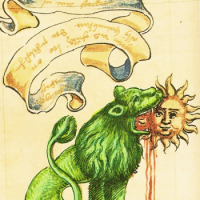Berichten: 22
Taal: English
Alkanadi (Profiel tonen) 27 augustus 2014 08:05:37
Would it be wrong to say "Doktoro" for a female doctor or should it always be "Doktorino"?
johmue (Profiel tonen) 27 augustus 2014 08:36:21
Alkanadi:Is it nessesary to always use -in- when describing people?That's the topic of Esperanto grammar that I find most annoying.
Would it be wrong to say "Doktoro" for a female doctor or should it always be "Doktorino"?
http://bertilow.com/pmeg/gramatiko/o-vortoj/seksa_...
Kirilo81 (Profiel tonen) 27 augustus 2014 09:56:23
Alkanadi:Is it nessesary to always use -in- when describing people?Shortly: No, unless you're using a noun with inherent male meaning. These are, however, only about 20 words - for kinship terms (patro...), titles (reĝo) and single ones like knabo, viro.
Would it be wrong to say "Doktoro" for a female doctor or should it always be "Doktorino"?
Bemused (Profiel tonen) 29 augustus 2014 04:57:56
If you wish to describe the person as a doctor, and gender is irrelevant, then you can use doctoro.
Had you wished to specify that the doctor was male, it would not be so simple, the language has "evolved" (devolved) to the point where that concept is not so easily expressed unambiguously.
erinja (Profiel tonen) 29 augustus 2014 05:11:20
Bemused (Profiel tonen) 29 augustus 2014 05:42:53
erinja:Um, it would be simple to indicate that a doctor is male, why are you being so misleading? It would be "virdoktoro" (with a k) in that case.Oops, thanks for pointing out the spelling mistake, should have been doktoro with a k .
However as to your other point.
viro = man
doktoro = doctor
virdoktoro = man doctor, could be a doctor who is male, could be a doctor who specialises in treating men.
sproshua (Profiel tonen) 29 augustus 2014 06:00:40
personally i don't like vir in this case since it implies a particular type of masculine human behavior (e.g. vireco means virility/manliness).
instead, you could say malina doktoro since in is used more often to describe physiology (sex) rather than psychology (gender; even though ina is used to mean feminine/womanly in some contexts, i think virina is better for expressing that sentiment. my 2 cents).
morfran (Profiel tonen) 29 augustus 2014 06:17:36
erinja:Um, it would be simple to indicate that a doctor is male, why are you being so misleading? It would be "virdoktoro" (with a k) in that case.Kind of depends on where (and when) one learns the language. According to the 1980 edition of the PAG, vir- as a prefix isn’t used with people:
PAG:2. But the vir-form is very rarely used, and only with animals where one absolutely needs precision: el ĉiuj brutoj prenu po sep paroj, virbestojn kaj iliajn inojn! Instead, one ordinarily uses the simple form: al feliĉulo eĉ koko (=virkoko) donas ovojn; sur la korto staras koko kun tri kokinoj; that’s the only form used for humans: mi konas tiun anglon (ne: vir-anglon!); li estas prezidanto de la komitato.The PMEG, on the other hand, is seemingly a little freer with vir-:
PMEG:By using VIR as a quasi-prefix or an adjective, one can give the masculine gender to a word: virleono, virhundo, virhomo, vira studento. With a neuter root one can add VIR- or vira if one wants to clearly show it’s male: Virhundoj agas alie ol hundinoj. Tiu rolo estas por vira aktoro.But not that much freer: “On the other hand,” it says, “with many neuter words, one often doesn’t show masculine gender, even when it might be needed.”
It also advises that
PMEG:If the root’s already masculine, one of course doesn’t add VIR: Li estas reĝo.Which roots are masculine and which are neuter, however, it frankly admits are subject to opinion, especially with the names of animals and professionals.
So, getting back to the good Doctor, if it’s female, both books advise that it’s very often doktorino, but usually just a doktoro if it’s male. If one absolutely must be clear about masculinity, however, vira seems more common with people, vir- with animals.
Then again, as is often the case with these things, if you ask ten Esperantists, you’ll get ten different answers; you’ll have to decide for yourself What Would Zamenhof Do, or, failing that, what makes the most sense to you.

sergejm (Profiel tonen) 29 augustus 2014 07:32:06
Vira doktoro may be one who cures male illnesses, but you can use viro doktoro for male doctor.
mbalicki (Profiel tonen) 29 augustus 2014 08:08:55
morfran:So, getting back to the good Doctor, if it’s female, both books advise that it’s very often doktorino, but usually just a doktoro if it’s male. If one absolutely must be clear about masculinity, however, vira seems more common with people, vir- with animals.
sergejm:Virdoktoro is unnatural. Use Sinjoro Doktoro instead.I'm aware that what I'm going to say is an unpopular opinion on this forum, but it wasn't me, who brought up the subject.
Vira doktoro may be one who cures male illnesses, but you can use viro doktoro for male doctor.

Sure, if I was to talk about a doctor who happens to be male, in the vast majority of cases doktoro would be totally sufficient. However, if my statement would require me to emphasise male sex of the doctor, I wouldn't consider structures such as ambiguous vira doktoro nor animal-sounding virdoktoro nor unnecessarily long sinjoro doktoro, but I'd go with the fully symmetrical doktoriĉo.






